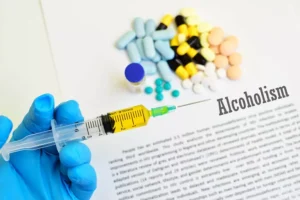AA is a recovery program for multiracial men and women who are suffering from an alcohol use disorder. Through companionship, mutual respect, and shared experiences, AA members come https://ecosoberhouse.com/ together to maintain abstinence from alcohol and build sober lives. If you’re passionate about putting a halt to your alcohol consumption, AA membership is available to you.
Renewal Center for Ongoing Recovery
My biggest issue with the disease model of addiction is that it completely lets society off the hook by squarely placing the disorder on the individual. In this article, I will show its importance and the implications that it has examples of powerlessness over alcohol had, and will continue to have, on the field of addiction treatment. Then, your questions, comments, or feedback are welcomed at the end. Some other differences–taking your medication typically keeps you out of the hospital.

Thinking About Treatment?
- Other 12-step programs include Al-Anon, Gamblers Anonymous, Overeaters Anonymous, Sexaholics Anonymous, and others.
- Slips and relapse are part of the normal trajectory of recovery.
- Whether or not you have a problem with alcohol, how often have you heard the phrase « honesty is the best policy »?
- Part of the lack of control supported by the disease model of addiction comes from the observed changes in brain chemistry caused by long-term alcohol misuse.
- « Alcohol has been around since before the time of Christ, » I’d argue.
Another example of powerlessness in sobriety is the need to let go of old habits and patterns that contributed to addiction. These habits may include associating with certain people, visiting specific places, or engaging in particular activities that trigger cravings and unhealthy behaviors. Recognizing that these old habits and patterns have power over one’s ability to maintain sobriety is crucial. Letting go of these familiar but destructive behaviors requires a willingness to embrace change and adopt healthier alternatives. This process often involves seeking support from others, implementing new coping mechanisms, and creating a supportive environment that fosters recovery. In the journey of sobriety, understanding and embracing powerlessness is a fundamental aspect of recovery.
responses to “Signs That Your Life Has Become Unmanageable Due To Alcoholism and Addiction”

Step One in the 12 step program of AA (which is also used, in modified form, for almost all other 12-step fellowships and programs) is actually a two-part step. The first part of Step 1 is an admission of powerlessness over the drug of choice. Though there is much debate about what constitutes ‘powerlessness’, one can say it simply means that the individual cannot control their intake of the drug or alcohol.
Step 1 of AA can be one of the most difficult on your journey to sobriety. You must first admit powerless over alcohol and be honest with yourself about the situation. Any admission that you are powerless over your addiction should be accompanied by a huge sigh of relief because you never have to find yourself in this situation again. You have not only admitted there is a problem, but by also seeking help you have already begun to address the issue. By letting others guide you through treatment and recovery, you are that much closer to a happier and healthier life.

Groups have said that unmanageable means alcoholics cannot manage the decision to stay stopped. When they start, they will do way more than they intended and when they stop, they will eventually start again. Unmanageable is only printed once in the first 164 pages of the Big Book of Alcoholics Anonymous, which in the first step. It’s left many people to interpret what unmanageable means in the book. In the rooms of Alcoholics Anonymous, there are several different viewpoints that you can hear about unmanageability.
- Indeed, we would like to stress that we have a lot of respect for the Alanon fellowship for the people that it has helped over the decades.
- This is the first step of the 12 step programs of Alcoholics Anonymous and Al-Anon programs, which have been attended by millions of people over the last several decades.
- Denial is a classic symptom of addiction, especially in the form of justification.
- It involves realizing that your attempts at self-control are not cutting it, and that you need to rely on others to support you in gaining discipline and control.
Motivation is the key to change
Although the illusion of control may continue, their lives become unmanageable, because alcohol is really in control. Even though it is the thing that causes most of the unmanageability, alcohol, and drugs are our only relief. Usually, in this case, alcohol or addiction recovery is needed. When it pertains to alcohol abuse and substance abuse, you could list many ways that it has become unmanageable.
The Diagnostic and Statistical Manual of Mental Disorders (DSM) is the standard classification of mental health issues used by mental health professionals in the U.S. It contains a listing of diagnostic criteria for every psychiatric disorder recognized by the U.S. healthcare system. Both the DSM V and IV include social problems as necessary to have a Substance Use Disorder (SUD, the clinical name for addiction).
- This step of accepting powerlessness from the 12-Step process of recovery essentially highlights the power of drugs and alcohol over our lives.
- You will be unable to go further in your recovery if you cannot recognize that you and alcohol do not mix.
- Through mindfulness practices, seeking support from others, and embracing a higher power or spiritual connection, individuals can find the strength to overcome addiction and lead fulfilling lives in sobriety.
- Also, importantly, it flies in the face of all the principles of social psychology.
- What is the more accurate way of looking at your process in recovery, in light of powerlessness?

Addiction is a disease, and with the right treatment, diseases can be effectively managed. Powerlessness is a lack of decision-making control over your life. It can arise from dependence on drugs and alcohol or in workplace environments with higher-up employees and lesser subordinates. Similar to this workplace dynamic, the ingredients for a situation where individuals lack power usually occur when there is a large divide between the decision-makers and individuals underneath. In harm reduction, a client is seen as a success when they make life improvements, regardless of whether or not they change their relationship with substances. This type of treatment is often written off as enabling––but who are we to judge?
